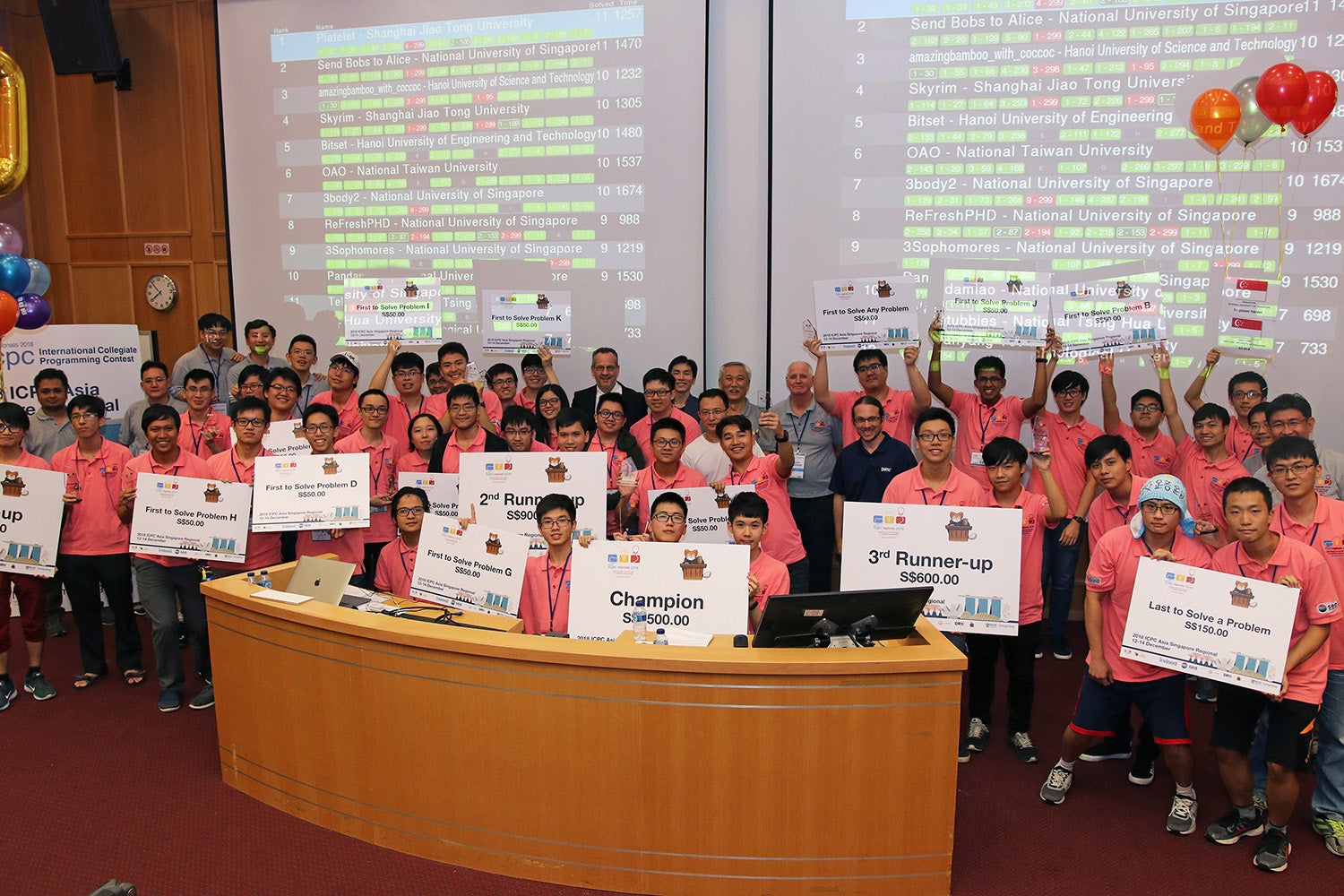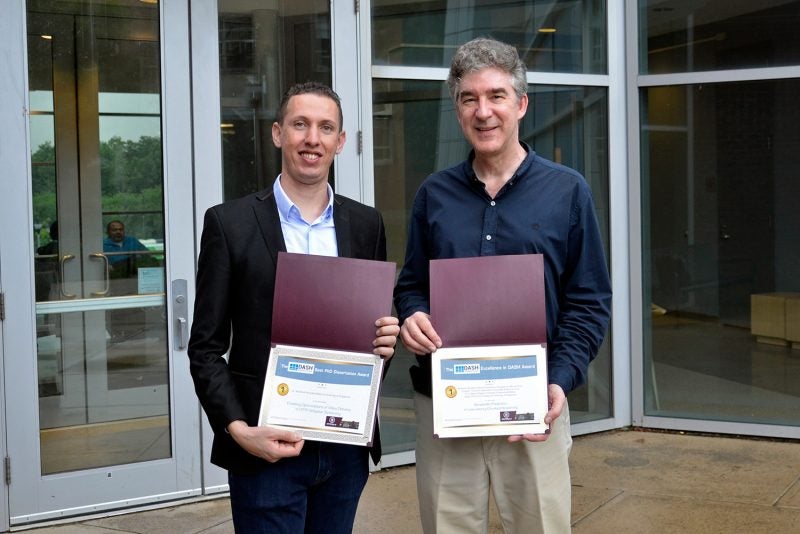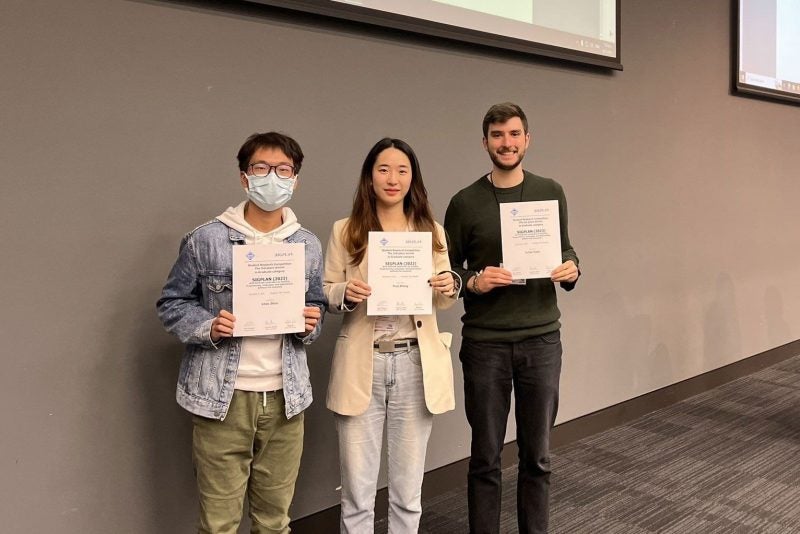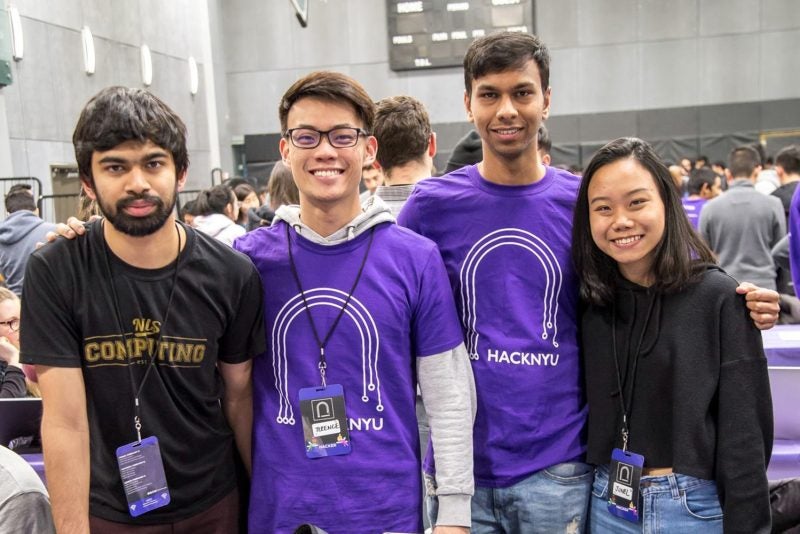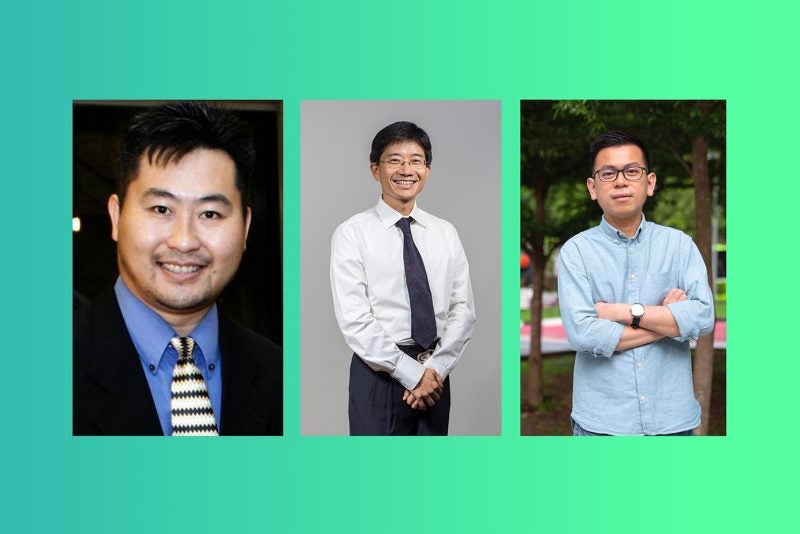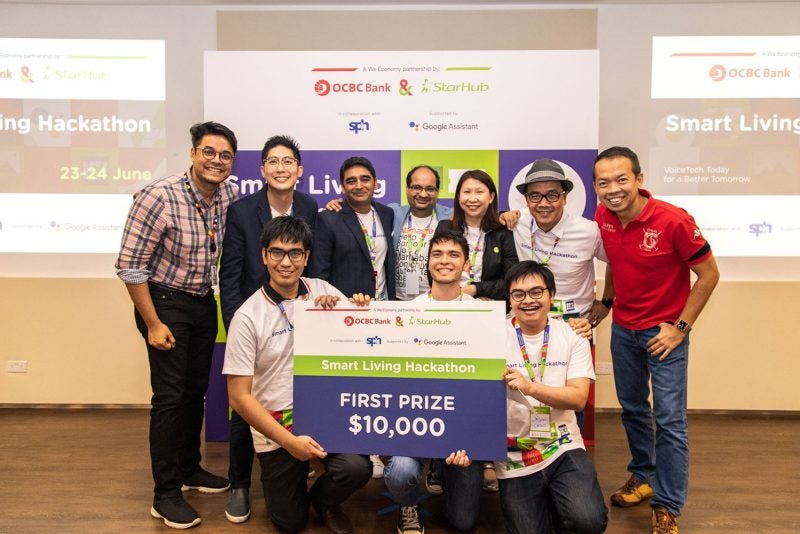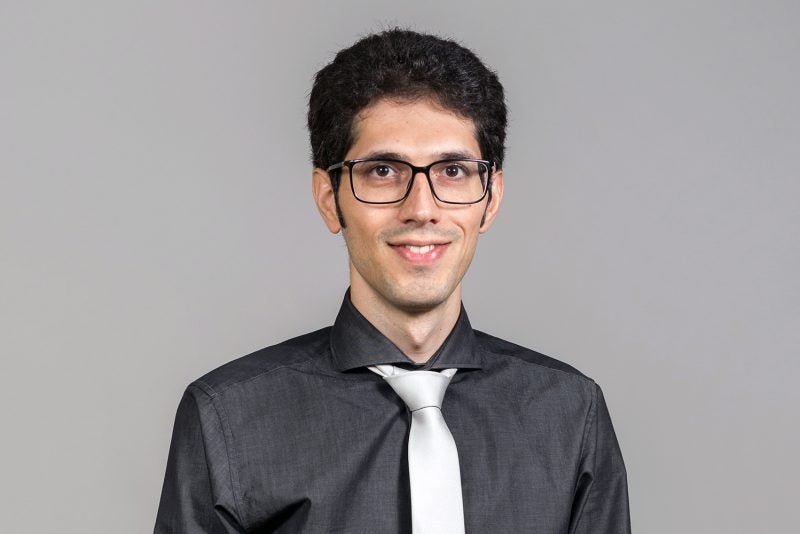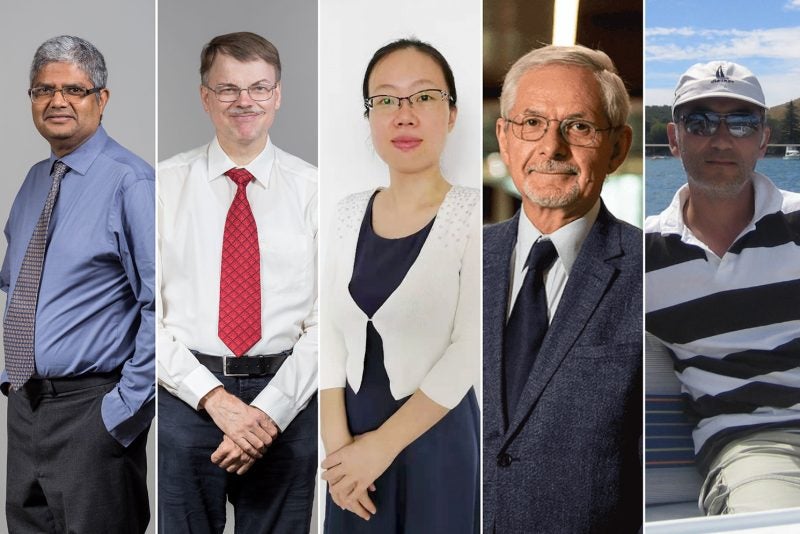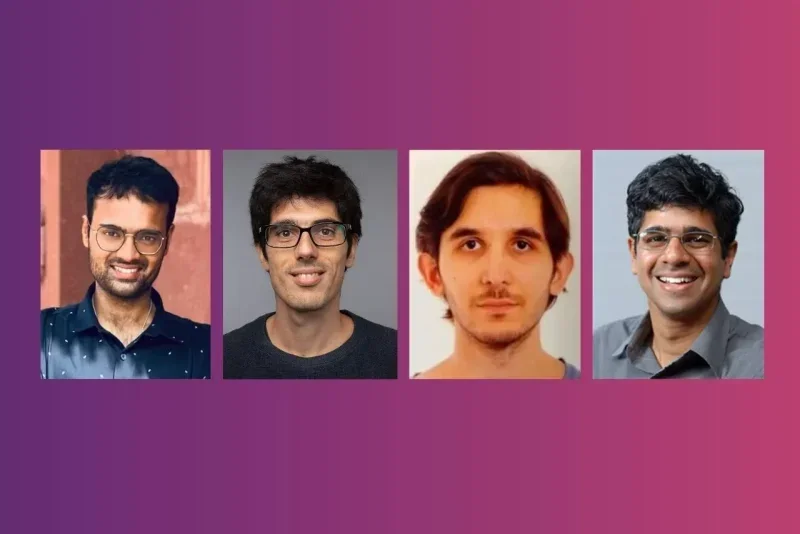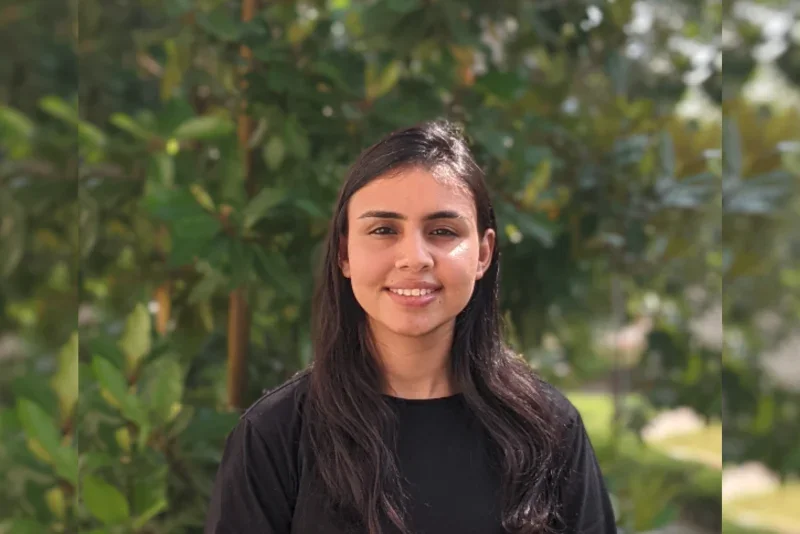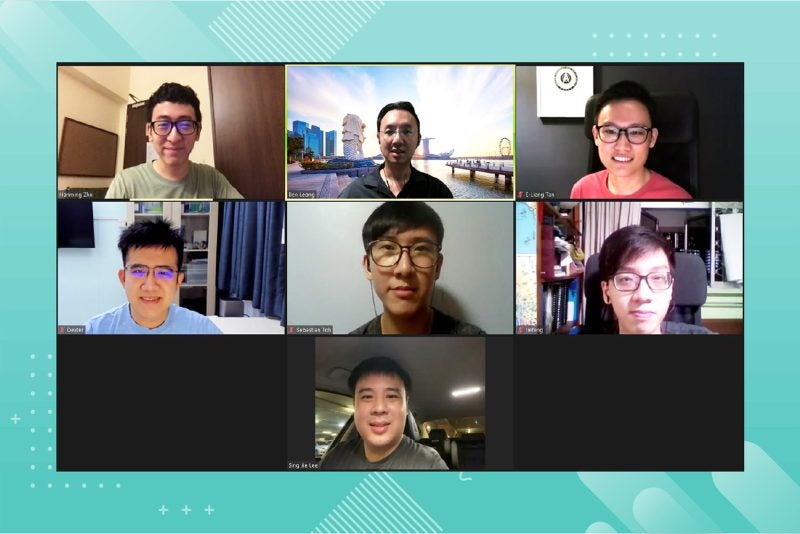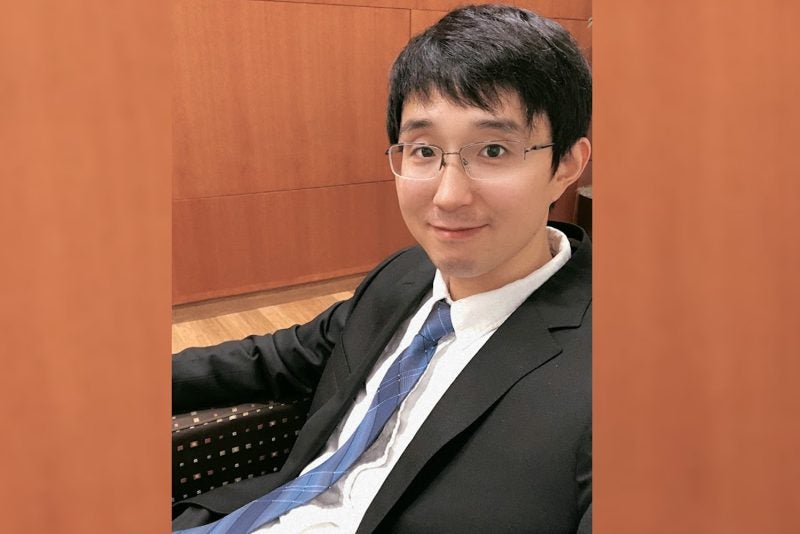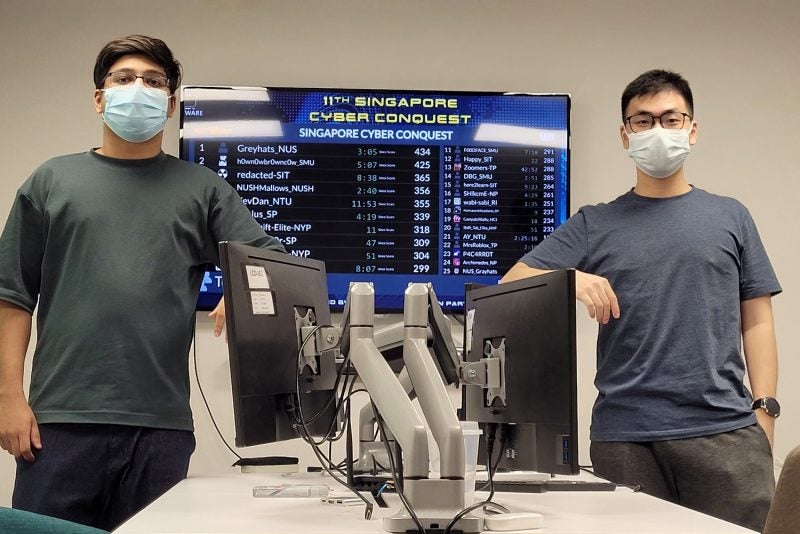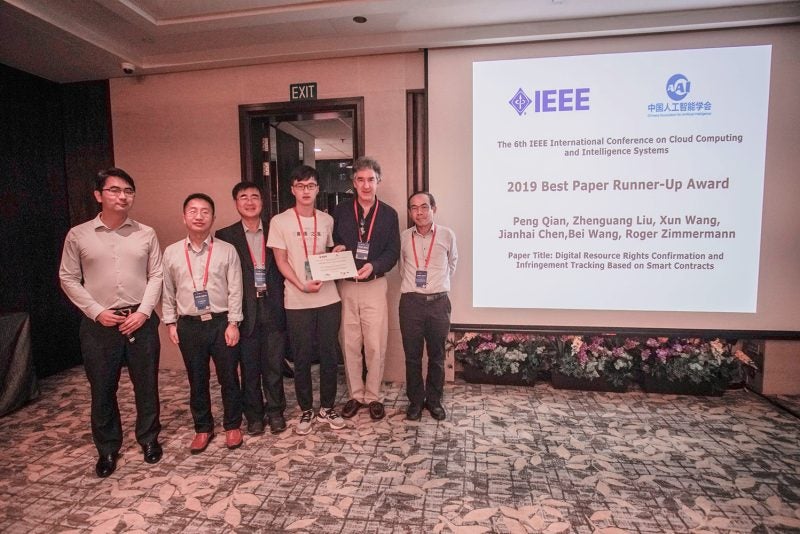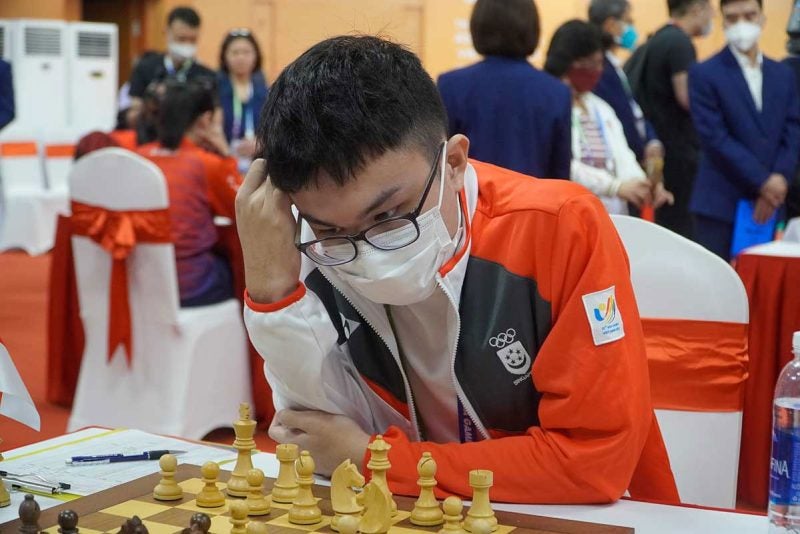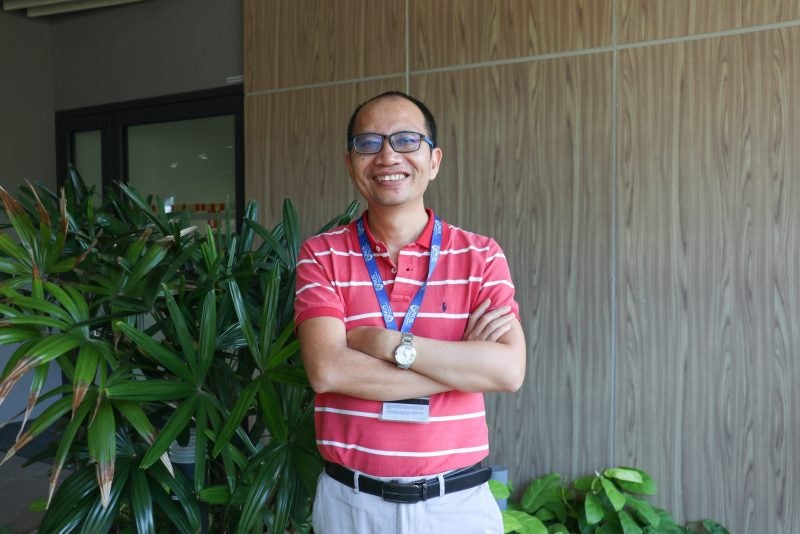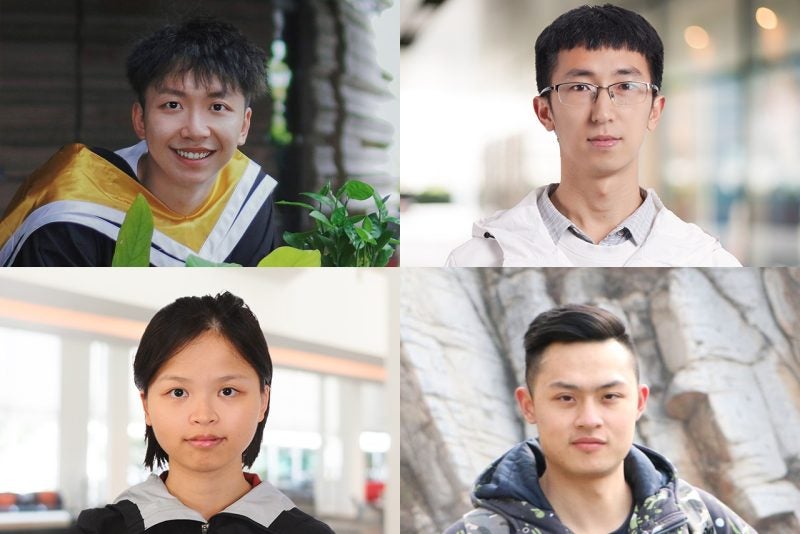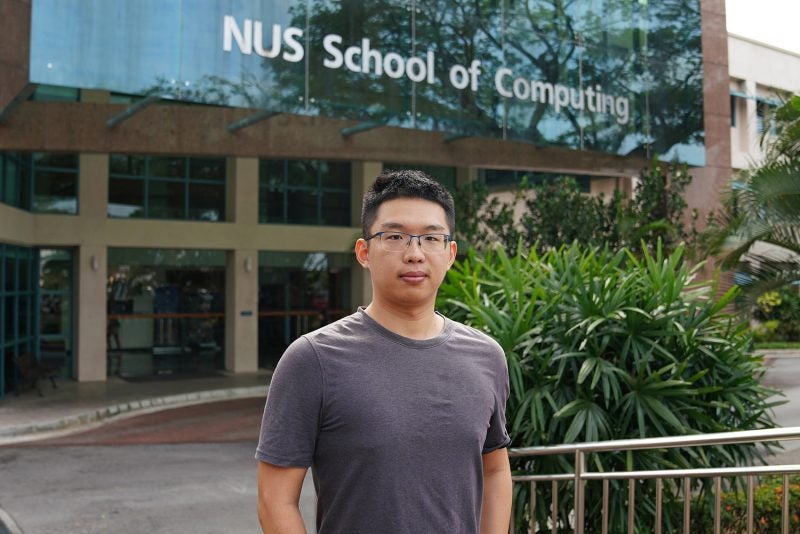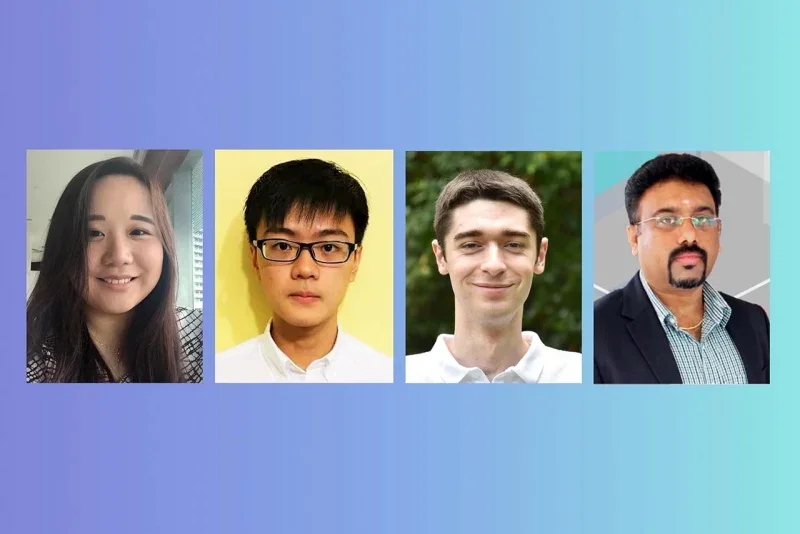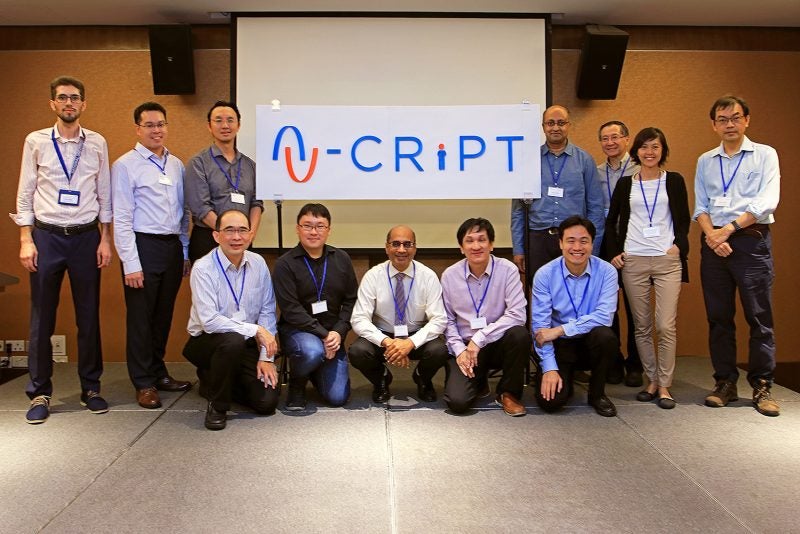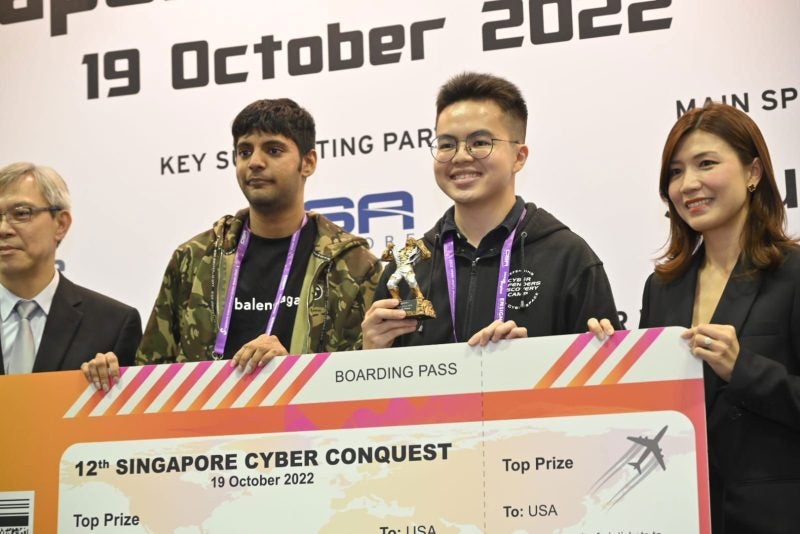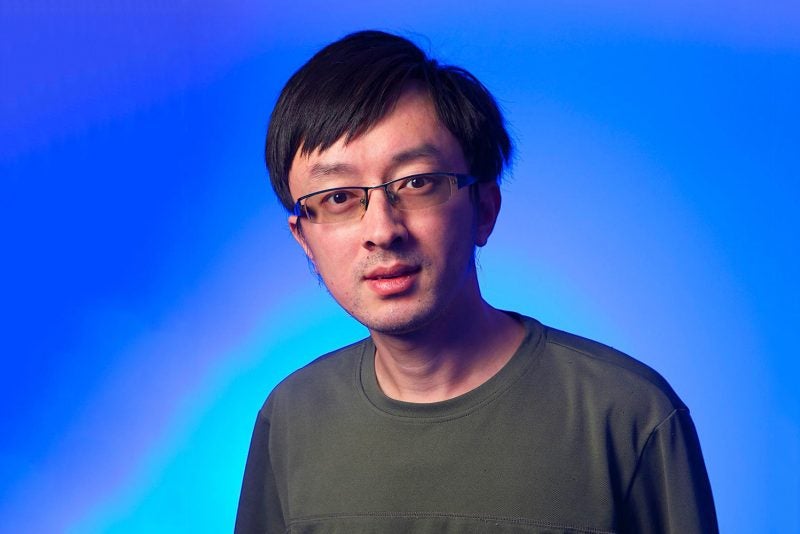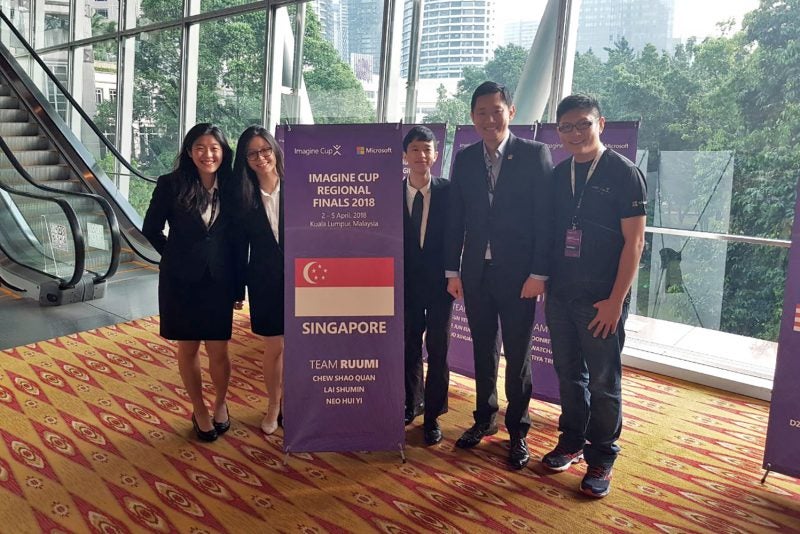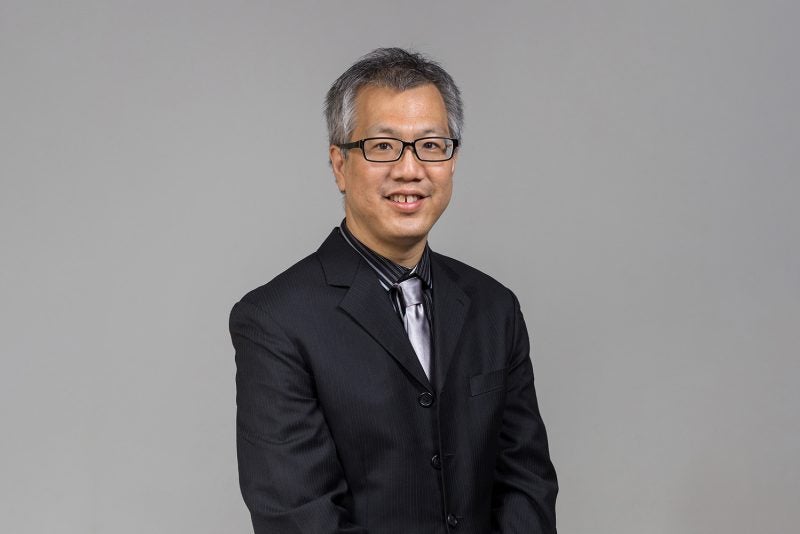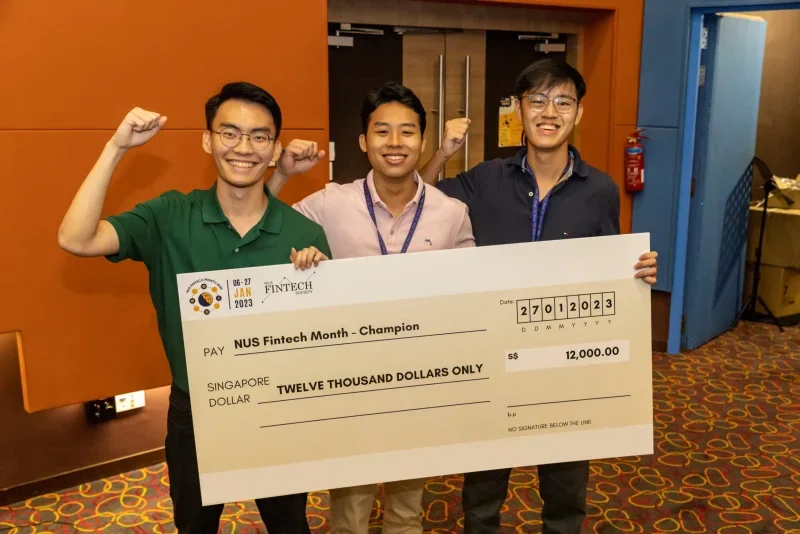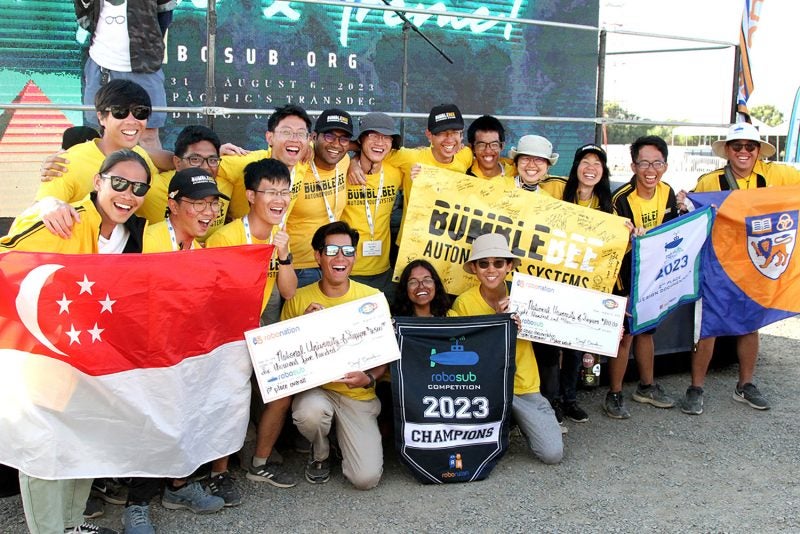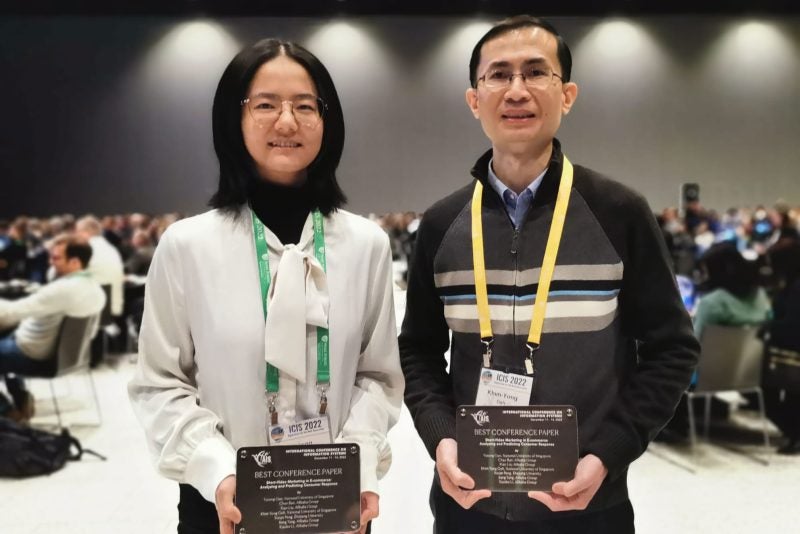17 December 2018 – NUS Computing teams performed well at the recent International Collegiate Programming Contest (ICPC) Singapore regional contest held from 12 to 14 December. The home teams took up half of the top ten rankings and swept up seven of the 11 “First to Solve” prizes given out at the closing ceremony held at the NUS Kent Ridge campus.
Team Platelet from Shanghai Jiao Tong University clinched the top position at the competition, while NUS team Send Bobs to Alice came in second after the Chinese team. Both teams managed to solve 11 out of 12 algorithmic problems. Hanoi University of Science and Technology and VNU University of Engineering and Technology won the Second Runner-up and Third Runner-Up prizes.
Four other NUS teams – Team 3body2 (Bay Wei Heng, Sidhant Bansal, and Bernard Teo), Team ReFreshPHD (Ammar Fathin Sabili, Steven Wijaya, and Yehezkiel Raymundo Theodoroes), Team 3Sophomores (Sergio Vieri, Robin Yu, and Kwee Lung Sin), and Team Pandamiao (Gan Wei Liang, Ranald Lam, and Nguyen Tien Trung Kien) – placed seventh, eighth, ninth, and tenth, respectively. In addition, Team ReFreshPHD was the only team in the contest to win two “First to Solve” prizes.
This is the third time NUS Computing hosted the university-level competitive programming contest. A total of 50 teams from 25 universities around the region competed in the contest.
“The teams in this competition were very strong, such as those from Shanghai Jiao Tong University, the Hanoi University of Science and Technology, and the Vietnam National University. I’m happy that Team Send Bobs to Alice managed to clinch the runner up spot,” said Regional Contest Director and NUS Computing Senior Lecturer Dr Steven Halim.
The ICPC Singapore regional contest is generously supported by Indeed, Sea Group, Jump Trading, and DRW.
Top performance from freshmen team
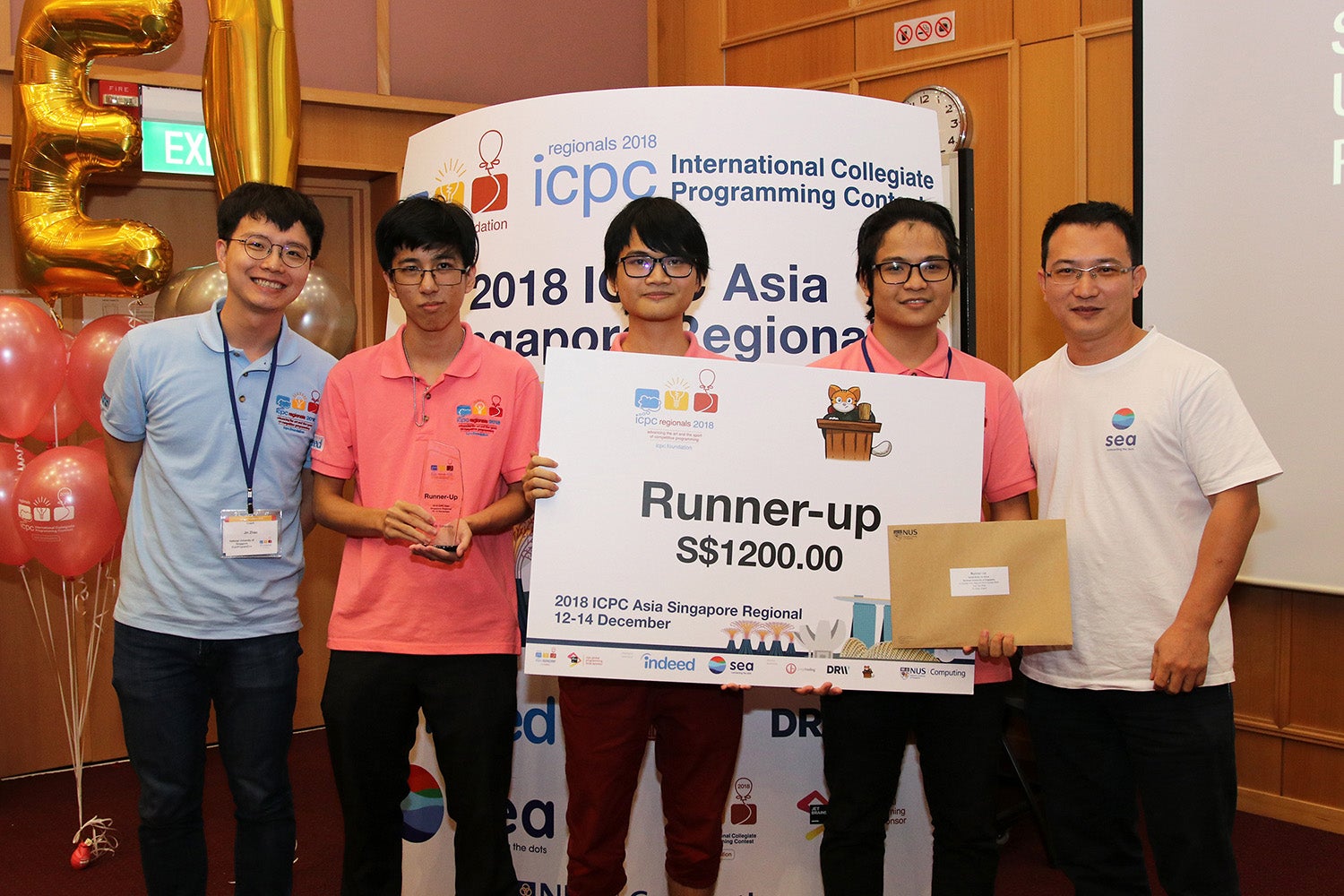
Team Send Bobs to Alice, made up of first year Computer Science students Le Quang Tuan, Nguyen Dinh Quang Minh, and Tran Tan Phat, won the Runner-up prize at the recent Singapore contest. The NUS team beat 48 other teams in their second ICPC contest and narrowly missed the top spot to Shanghai Jiao Tong University. This is the second time Team Send Bobs to Alice competed in the ICPC regional contests. The team also won third place at the Nakhon Pathom regional contest last month.
In the first hour of the competition, it seemed as though the odds were against the freshmen team. The trio was lagging behind other top performing teams by two problems, and the team’s unsuccessful submissions have raised their penalty. Despite their rocky start, the team managed to regroup and to tackle the problems carefully to prevent incurring more penalty. At one point, the team managed to move up to the top of the live scoreboard, and subsequently stayed within the top few rows.
“When we looked at the final frozen scoreboard, we knew that we would clinch at least the second place title. We struggled at the beginning, but we managed to catch up and was pretty much on par with everyone else. I’m very pleased with our performance,” said Minh, on behalf of the team.
Yangon Champions
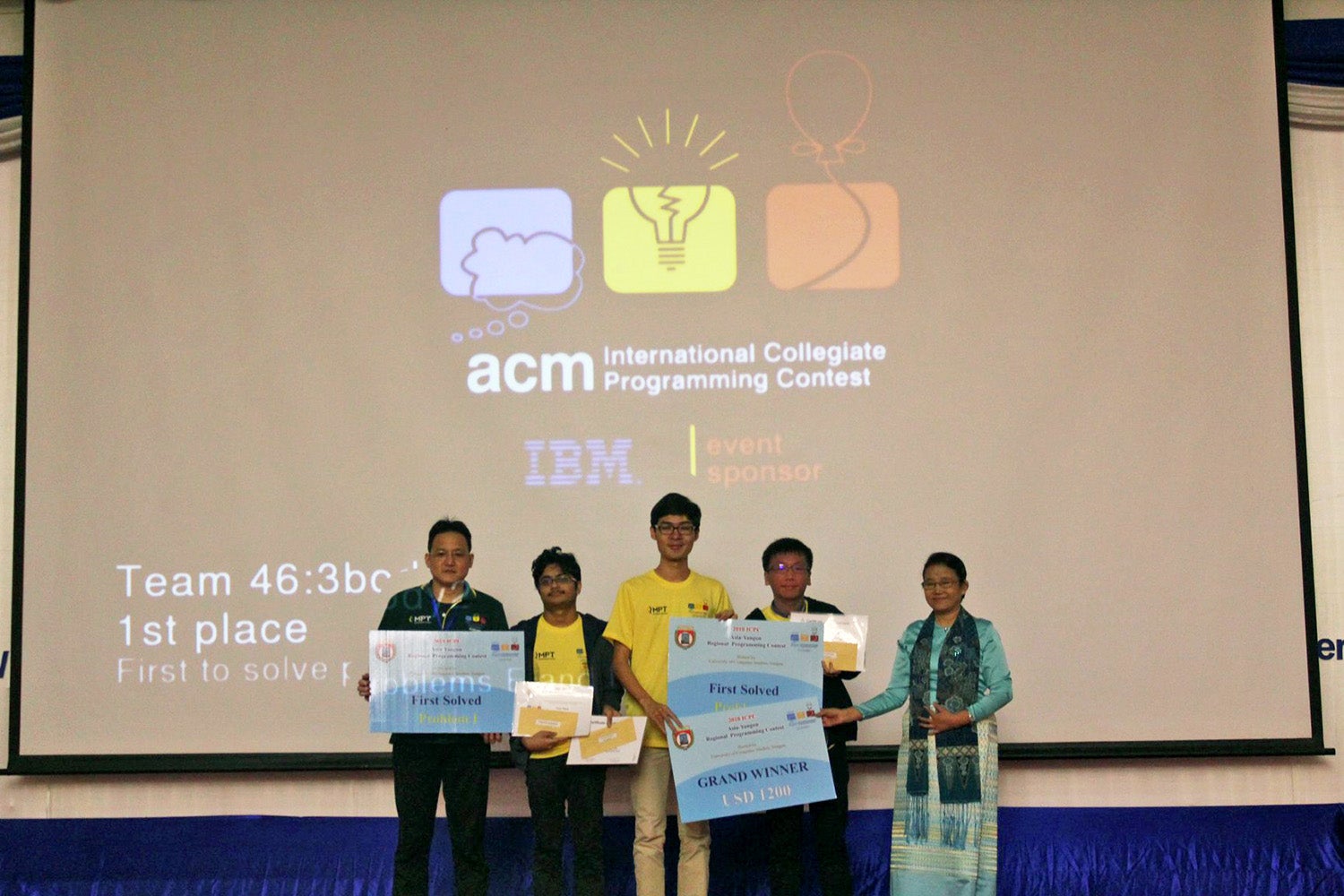
Team 3body2, consisting of Sidhant Bansal (Year 2 Computer Science), Bay Wei Heng (Year 3 Computer Science and Mathematics), and Bernard Teo (Year 2 Computer Science and Applied Mathematics), emerged as champions in the Yangon regional contest held from 8 to 10 December. A total of 87 teams, including teams from Vietnam National University and Bina Nusantara University, competed in the regional university-level programming contest hosted at the University of Computer Studies, Yangon.
The team solved a total of 10 out of the 12 contest problems, and was also the first team to solve two problems. This is the first time an NUS team won the grand prize at the Myanmar contest. As a result of their good performance at the Yangon and Singapore contests, the team will be headed to the 2019 ICPC World Finals in Porto, Portugal, where they will compete against 140 teams from 111 countries in the top tier programming contest.
“For the actual contest, we decided to adopt the strategy of attempting questions that were tough, but that we had comparative advantage in, like math related problems,” said Wei Heng, on behalf of his team. The team solved four questions in the first hour, and another four questions in the next two and a half hours. This gave them a comfortable lead of two questions.
However, nearing the closing ceremony, the team however lost confidence in clinching the first place. Their closest competitor, Team Vector from Vietnam National University, had their attempted solutions re-judged and received two more correct solutions. In addition, the team also incurred a time penalty for their attempts to solve one of the problems. “We were afraid that we could be in serious trouble if Team Vector had their time penalty reduced as well. Thankfully, we did win and this made us all the more happier,” added Wei Heng.
Two other NUS teams, Team 3NationsIOI (Agus Sentosa Hermawan, Lim Li, and How Si Wei) and Team power harder (Raynold Ng, Muhammad Irham Rasyidi, and Yan Hao Ling), achieved a commendable ranking of 11th and 13th place at the same contest.
About ICPC:
The International Collegiate Programming Contest is an algorithmic programming contest for college students. Teams of three, representing their university, work to solve real-world problems, while fostering collaboration, creativity, innovation, and the ability to perform under pressure. Through training and competition, teams challenge each other to raise the bar. It is the oldest, largest, and most prestigious programming contest in the world, with more than 50,000 students worldwide from over 3,000 universities in 111 countries competing in the contest.
News mention:
NUS News, 17 December 2018

